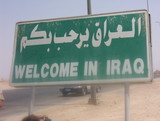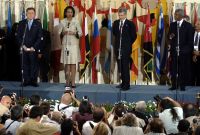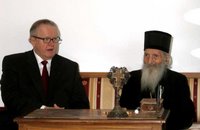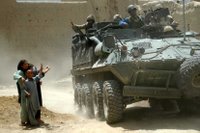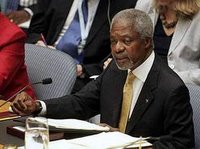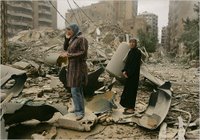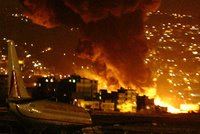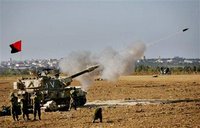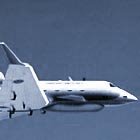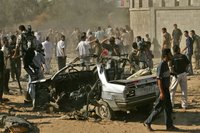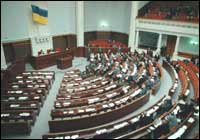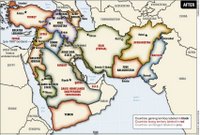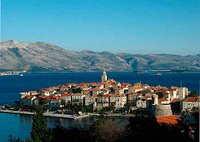Time for Europe?
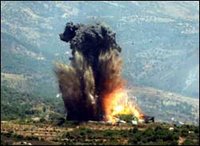 It didn't get any better in the Middle East today.
It didn't get any better in the Middle East today.Rather on the contrary.
New images of civilian casualities of the Israeli bombing campaign came at the same time as Jerusalem said that they had no interest in any early cease-fire.
Exactly what they hope to achieve by some more weeks of war is increasingly unclear.
The simply thruth is that there are no clear-cut objectives that can be achieved with the chosen military strategy.
For the US the situation is obviously starting to become difficult.
One is increasingly aware of the damage done to the political position of the US around the world. I would guess that - among others - diplomats and military commanders in Iraq are sending clear messages on the effect Washington's support for Israel's war has on their position.
When Secretary of State Rice was informed that she was not welcome to come to Beirut for talks was that a snub of the first order. It also showed that the leverage the US has in the regions risks declining in a dangerous way.
I see no real alternative to an early cease-fire.
Prime Minister Olmert is saying that a cease-fire now will mean that the original problem will very soon come back. That's a rather devastating indictment against himself.
But a cease-fire later will in all probability have damaged the credibility of the entire Western world even more than is already the case - and the delay will have achieved very little else.
So it's really time for diplomacy.
It might even be time for a more active European role.
To shape a such will certainly not be easy in view of the differences of opinion that are there.
But to abstain from even trying would be to deny the diplomacy of the conflict the balanced voice that's so obviously missing - and will be missed with increasing desperation.


